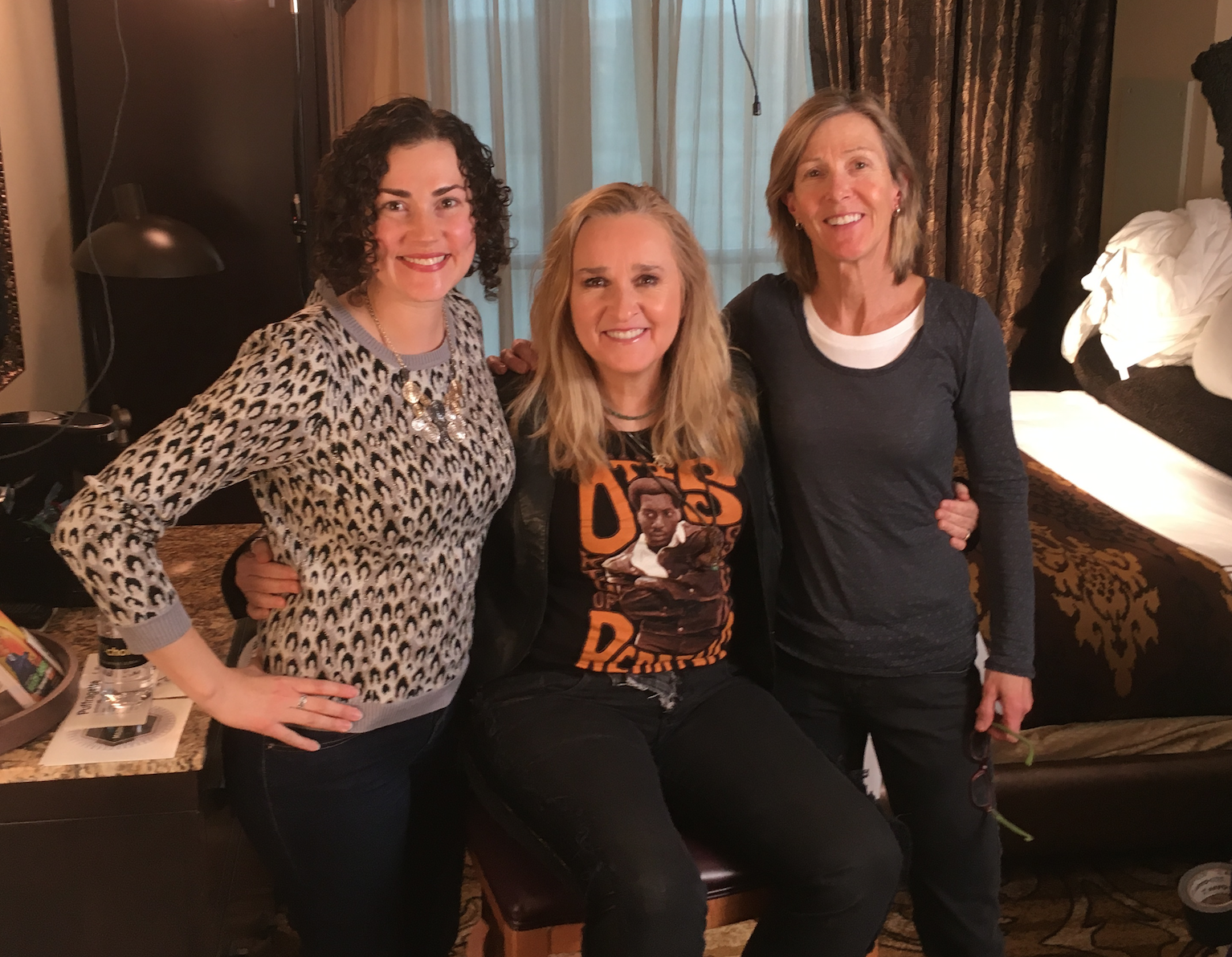Canna Culture: Director Windy Borman, “Mary Janes: The Women of Weed”
Windy Borman, is a multi-award-winning director and producer, as well the founder of DVA Productions, a socially conscious production company. She is currently the Executive Producer and Director of the groundbreaking documentary, "Mary Janes: The Women of Weed". Most recently Windy directed and produced the 10-time award-winning documentary, "The Eyes of Thailand", narrated by Ashley Judd; and produced "The Big Picture: Rethinking Dyslexia", which premiered at Sundance and on HBO. Other credits include producing and directing “The Vagina Monologues,” producing performances for Margaret Cho and Dr. Maya Angelou, and writing for Takepart.com and IndieWire: Women and Hollywood. From 2003-2005 Ms. Borman dedicated two years to Teach For America, where she taught middle school drama and dance in the South Bronx. She founded DVA Productions in 2006 to use her gift of storytelling to create cinematic and immersive experiences that promote peace, justice, and equality.
High Herstory: Windy, we’re huge fans of your work and mission to empower women. You’re an award-winning producer and director, and are really doing the work to tell the stories that matter. Do you remember what got you interested in storytelling?
Windy: I’ve always been intrigued by social issues, especially gender equality, social justice, environmental protection, education and empowerment. Dance and theater were my original outlets, but I turned my attention to film and television 20 years ago. My previous films ranged from the dangers of elephants stepping on landmines in Thailand (“The Eyes of Thailand”) to the gifts and challenges of dyslexia (“The Big Picture: Rethinking Dyslexia”). When I moved to Colorado in 2014—the same year recreational use of marijuana became legal—and started meeting successful women in the weed business, I knew I was perfectly positioned to tell these female entrepreneurs’ stories and inspire domestic and global audiences about how gender parity, social justice and environmental sustainability lead to greater success for all.
High Herstory: You spent two years of your career teaching dance and drama to middle school kids in New York. We recently worked with a youth empowerment program in New Orleans to give adolescents some of their first gigs in post-production. What qualities do you think are most important for teachers and mentors to possess when working closely with younger children?
Windy: Patience and empathy are important qualities to build trust as a teacher. You never know what kind of energy or experience someone has before they walk into your class. Most adults are not mindful enough to “check it at the door”, so how can we expect children and adolescents to know how to do this if it hasn’t been modeled? Listening to them and hearing where they are coming from builds trust and empathy. You need both to tell great stories.
High Herstory: At the time of making your film, “Mary Janes: The Women of Weed”, you had never consumed cannabis. Why is that?
Windy: I am the daughter of a doctor and nurse, and a product of the D.A.R.E. generation, who learned all drugs are bad, but particularly marijuana because it was a “gateway drug”. I had ample opportunity to try cannabis over the years, but never did until 2017. This is partially due to the fact I didn’t hang out with the people who had cannabis, and partially because I was turned off by the “stoner dude” images I saw. Next, there is alcohol and drug addiction in my family, so hearing marijuana was a “gateway drug” as a kid, I didn’t want to risk it. Now we know that alcohol and tobacco are the real gateways drugs, but by the time I realized that, I was too busy making films to risk having a bad reaction to cannabis—or any drug for that matter—so I avoided it.
Given all I’ve learned filming “Mary Janes: The Women of Weed”, I finally decided to try cannabis for the first time. In the ultimate life twist, my first “sesh” was on camera and we included it in “Mary Janes” for the entire world to see.
High Herstory: What was your first time consuming cannabis like?
Windy: I heard from many women that their first cannabis experience came at the urging of a man, or at least a male purchased the weed for everyone. I flipped that script and made very mindful and empowered choices. I purchased my own legal cannabis at a woman-owned dispensary and recruited a group of “Cannabis Fairy Godmothers” to guide me during my first consumption. As for what happened next, you’ll have to watch the film.
Director Windy Borman, Grammy(R) award-winning singer/songwriter Melissa Etheridge, and Cinematographer Kimman Harmon
High Herstory: Melissa Etheridge is one of the subjects of your film. Do you think that celebrities hold a heavier impact, compared to the average person, when it comes to removing the stigma of cannabis consumption?
Windy: Interviewing Melissa Etheridge was a dream come true. In “Mary Janes: The Women of Weed” she explains how cannabis fit into her cancer journey, how it opened up her creativity, and shaped her life as an artist, activist, and advocate.
I don’t think celebrities have a greater responsibility to destigmatize cannabis, but they can have a greater social impact by sharing their experience given our media landscape. At one point in the film Melissa says, “I can’t preach to you. I can’t tell you what you should do. That doesn’t work. I can be an example. I can tell you I am happier. I am healthier. My journey in life is clearer, more satisfying.”
This kind of authentic storytelling around plant medicine is powerful and what is needed if we are going to change the stigma, but that social responsibility falls on all of us as consumers, business owners, and citizens.
High Herstory: We just reached the 50 year mark of the War on Drugs. How should cannabis entrepreneurs at the executive level wield their power to make a difference?
Windy: If cannabis executives are not incorporating corporate social responsibility (CSR) into their businesses, they are missing an opportunity to heal the wounds of the War on Drugs. Unfortunately, I see a lot of profit-driven leadership; I want to see more purpose-driven leadership. As a new cannabis consumer, I look for brands that align with my values and make their CSR part of their brand story.
High Herstory: How can our audience watch the “Mary Janes” film and follow along with the Puffragette movement?
Windy: We invite everyone to join the #Puffragette Movement! “Mary Janes: The Women of Weed” is available worldwide via Apple TV, Google Play, Vudu, Vimeo, and for a limited time on DVD. You can read about the Puffragette Movement and support our work by buying Puffragette merchandise on our website <https://maryjanesfilm.com>. You can join the conversations online by following us on Facebook, Twitter, and Instagram via @MaryJanesFilm




